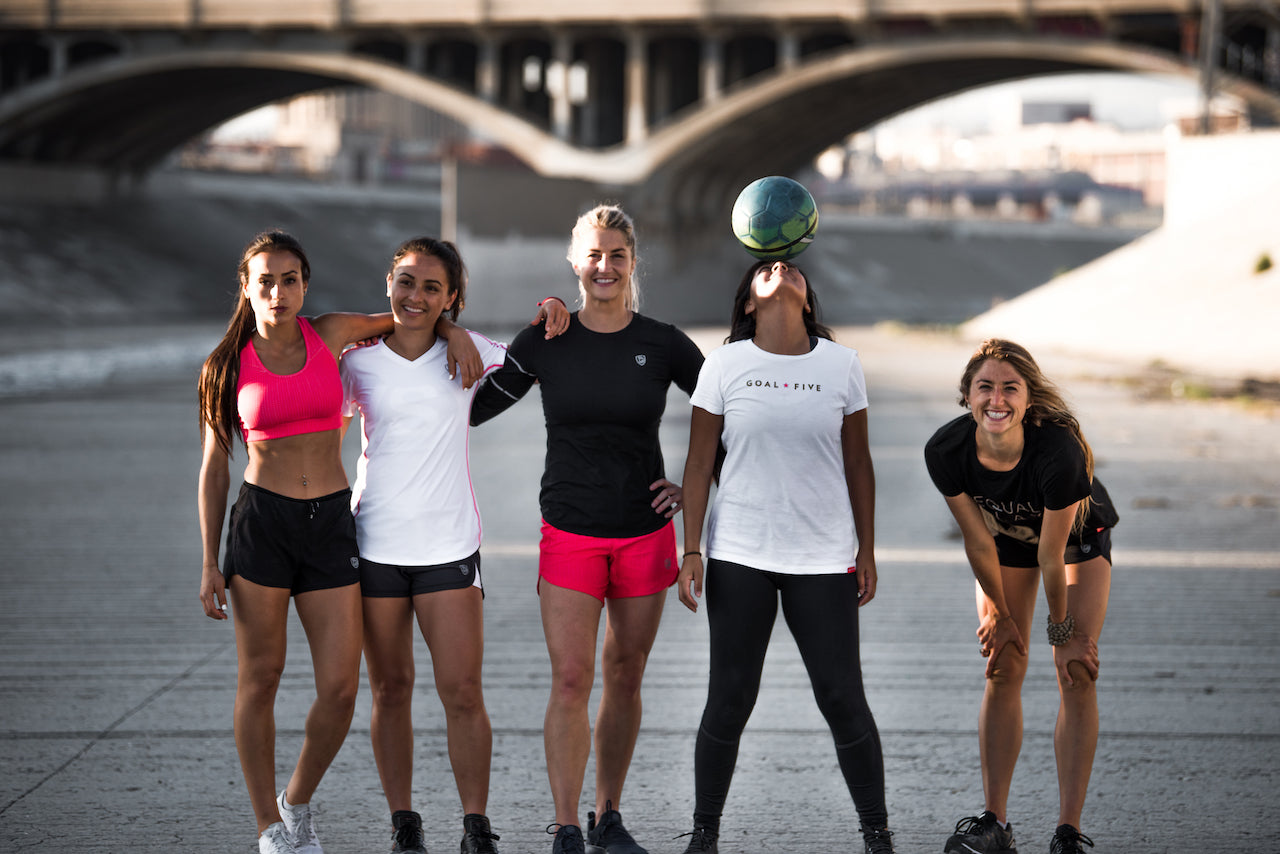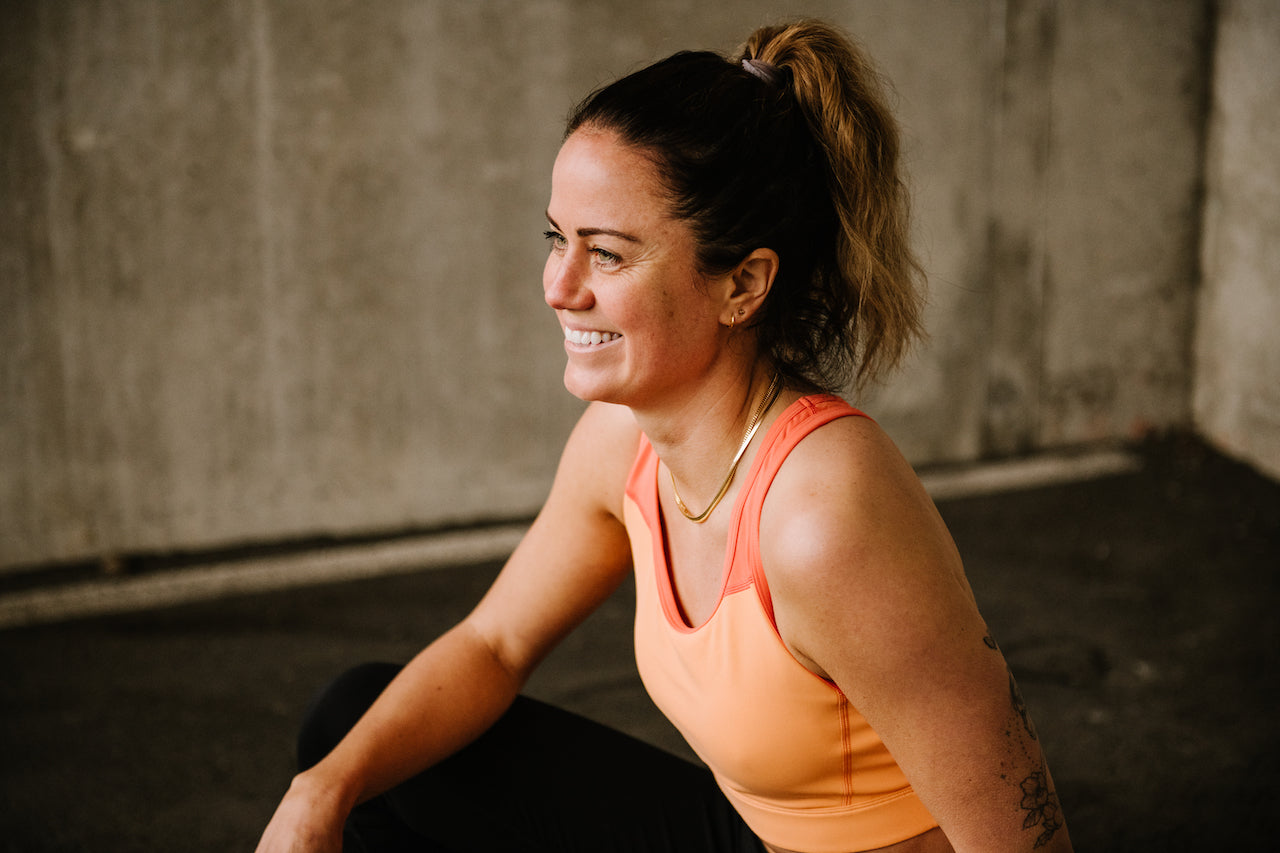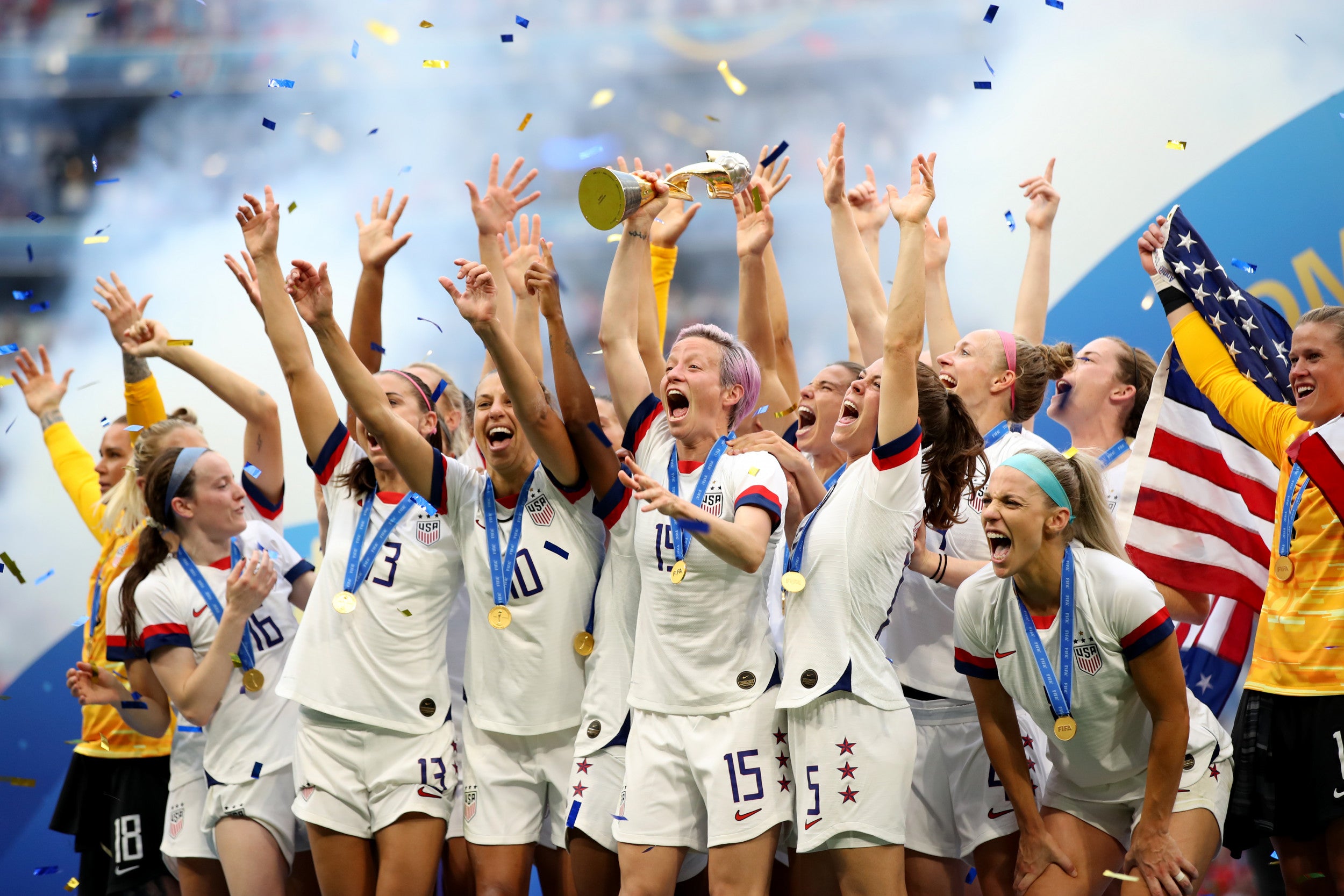The Olympics offer an incredible reminder of how much value the female athlete community adds to the world of sports, but they also bring to light how much harder female athletes need to work to be treated fairly. Women in sport, predominantly women of color, are constantly faced with obstacles that inhibit their success, simply because providing specific accommodations are seen as “inconvenient” or “special” in the eyes of many. However, we call B.S., and can confidently say that these “special accommodations” are not “special,” they’re human rights based on practical, personal, and cultural needs. Let’s talk about the challenges female athletes, specifically WOC, face in their sports, and the Olympics.
Many of the amazing athletes and Olympians we know and love (like Allyson Felix, Aliphine Tuliamuk, and Alex Morgan) are mothers of young children. Due to COVID-19 concerns, there was a heated debate over whether or not mothers competing in the Olympics should be allowed to bring their young babies with them to Tokyo, many of whom are still breastfeeding. To make one thing clear, we are all aware of the danger associated with hosting the Olympics during a pandemic and are sympathetic to the concerns of the Japanese people, but this debate had many mothers choosing between their dreams and the wellbeing of their children. The point is, and the overarching theme of this blog post (you’ll come to find out) is that the world has made the male athlete the default, and any issues that don’t apply to male athletes are considered “special circumstances” that are up for debate. Shocking, right?
Recently, the International Swimming Federation banned the use of swim caps designed for natural black hair at the Olympics, saying it does not ‘fit the natural form of the head.’ The original swim cap, designed by Speedo, was specifically made for Caucasian hair types, therefore directly excluding black athletes from the sport. The introduction of Soul Cap, a black-owned swim cap brand, into the Olympics was an opportunity to create an inclusive option for all non-white swimmers to compete on an equal level. Not only would these caps enforce the idea that there is no ‘normal’ head shape, they would protect the fragility of black hair and likely encourage more WOC to enter the sport in the first place. Our goal is to inspire the next generation to pursue the sport they love, and celebrate who they are authentically, not to make them choose between their athletic career and their hair.
It’s no secret that athletes are built different. We’re muscular, broad, and do not fit the mold of the ‘typical’ feminine body as defined by societal standards and male expectations. For many female athletes, and predominantly WOC, their ability and success is devalued when their physical appearance does not fit the ideal. Olympic Track and Field bronze medalist, Marilyn Okoro, was told that she was too big to be an 800 meter runner, and too short to be an 800 meter runner. As new athletes are introduced into the game, the demands of the game change, and standards for appearance need to change with them. Seems obvious enough?
Body image and physical appearance are issues that have plagued the black female athlete experience for as long as they’ve been competing; and oftentimes, barres them from competing or receiving endorsement deals at all. Many female athletes rely on endorsement deals for financial stability, and excluding black women from that conversation because they do not fit a physical standard creates a huge barrier to success, and is inherently racist. Like, we’re athletes...what are we supposed to look like?!
While the list goes on and on, the fight for equality in sports goes on with it. It’s time we shift the narrative and eliminate the idea that the male athlete is the default; because the truth of the matter is that it’s just not the case. The world is slowly beginning to recognize women as legitimate athletes, and we won’t stop fighting until these “special accommodations” made for women are the standard.




Leave a comment
This site is protected by hCaptcha and the hCaptcha Privacy Policy and Terms of Service apply.